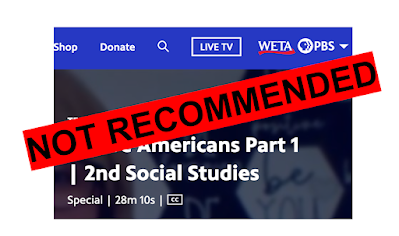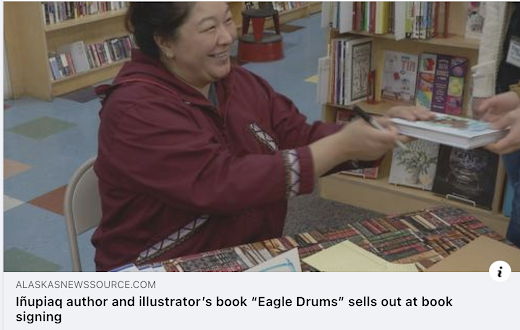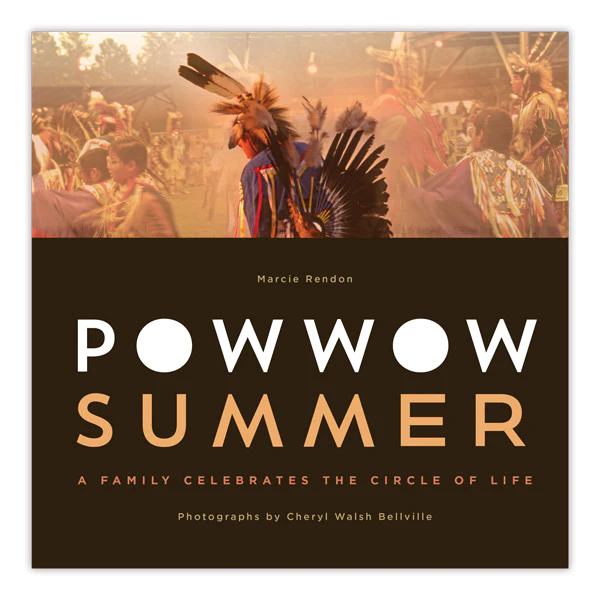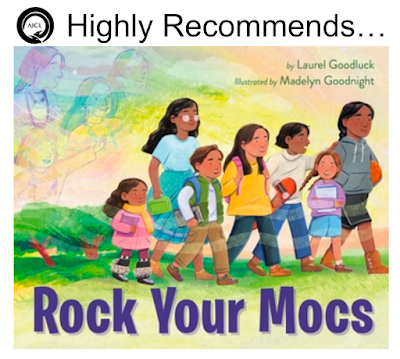- Home
- About AICL
- Contact
- Search
- Best Books
- Native Nonfiction
- Historical Fiction
- Subscribe
- "Not Recommended" books
- Who links to AICL?
- Are we "people of color"?
- Beta Readers
- Timeline: Foul Among the Good
- Photo Gallery: Native Writers & Illustrators
- Problematic Phrases
- Mexican American Studies
- Lecture/Workshop Fees
- Revised and Withdrawn
- Books that Reference Racist Classics
- The Red X on Book Covers
- Tips for Teachers: Developing Instructional Materials about American Indians
- Native? Or, not? A Resource List
- Resources: Boarding and Residential Schools
- Milestones: Indigenous Peoples in Children's Literature
- Banning of Native Voices/Books
- Debbie on Social Media
- 2024 American Indian Literature Award Medal Acceptance Speeches
- Native Removals in 2025 by US Government
Wednesday, October 04, 2023
Debbie--have you seen ALONE by Megan E. Freeman?
Monday, October 02, 2023
House and Senate Resolutions Regarding Book Banning and Threats to Freedom of Expression in the US
Expressing concern about the spreading problem of book banning and the proliferation of threats to freedom of expression in the United States.
Mr. Schatz (for himself, Mr. Reed, Mrs. Feinstein, Ms. Hirono, Mr. Wyden, Mr. Murphy, Mr. Merkley, Mr. Whitehouse, Mr. Booker, Mr. Cardin, Mr. Sanders, Mr. Durbin, Mr. Padilla, Mr. Markey, and Mr. Blumenthal) submitted the following resolution; which was referred to the Committee on the Judiciary
Expressing concern about the spreading problem of book banning and the proliferation of threats to freedom of expression in the United States.
Whereas the overwhelming majority of voters in the United States oppose book bans;
Whereas an overwhelming majority of voters in the United States support educators teaching about the civil rights movement, the history and experiences of Native Americans, enslaved Africans, immigrants facing discrimination, and the ongoing effects of racism;
Whereas, in 1969, the Supreme Court of the United States held in Tinker v. Des Moines Independent Community School District, 393 U.S. 503 (1969), that students do not “shed their constitutional rights to freedom of speech or expression at the schoolhouse gate”;
Whereas, in 1982, a plurality of the Supreme Court of the United States wrote in Board of Education, Island Trees Union Free School District No. 26 v. Pico, 457 U.S. 853 (1982), that schools may not remove library books based on “narrowly partisan or political grounds”, as this kind of censorship will result in “official suppression of ideas”;
Whereas the First Amendment to the Constitution of the United States protects freedom of speech and the freedom to read and write;
Whereas Article 19 of the Universal Declaration of Human Rights states that “everyone has the right to freedom of opinion and expression; this right includes freedom to hold opinions without interference and to seek, receive and impart information and ideas through any media and regardless of frontiers”;
Whereas PEN America has identified nearly 3,400 instances of individual books banned, affecting 1,557 unique titles from July 2022 through June 2023 alone, representing a 33-percent increase in bans compared to the prior year of July 2021 through June 2022;
Whereas of the 2,532 bans in the 2021–2022 school year, 96 percent of them were enacted without following the best practice guidelines for book challenges outlined by the American Library Association, the National Coalition Against Censorship, and the National Council of Teachers of English;
Whereas the unimpeded sharing of ideas and the freedom to read are essential to a strong democracy;
Whereas books do not require readers to agree with topics, themes, or viewpoints but instead allow readers to explore and engage with differing perspectives to form and inform their own views;
Whereas suppressing the freedom to read and denying access to literature, history, and knowledge are repressive and antidemocratic tactics used by authoritarian regimes against their people;
Whereas book bans violate the rights of students, families, residents, and citizens based on the political, ideological, and cultural preferences of the specific individuals imposing the bans;
Whereas book bans have multifaceted, harmful consequences on—
(1) students, who have a right to access a diverse range of stories and perspectives, especially students from historically marginalized backgrounds whose communities are often targeted by thought control measures;
(2) educators and librarians, who are operating in some States in an increasingly punitive and surveillance-oriented environment and experience a chilling effect in their work;
(3) authors whose works are targeted and suppressed;
(4) parents who want their children to attend public schools that remain open to curiosity, discovery, and the freedom to read; and
(5) community members who want free access to a range of uncensored information and knowledge from their public libraries;
Whereas classic and award-winning literature and books that have been part of school curricula for decades have been challenged, removed from libraries pending review, or outright banned from schools, including—
(1) “Brave New World” by Aldous Huxley;
(2) “The Handmaid’s Tale” by Margaret Atwood;
(3) “Anne Frank’s Diary: The Graphic Adaptation” adapted by Ari Folman;
(4) “Their Eyes Were Watching God” by Zora Neal Hurston; and
(5) “To Kill a Mockingbird” by Harper Lee;
Whereas books, particularly those written by and about outsiders, newcomers, and individuals from marginalized backgrounds, are facing a heightened risk of being banned;
Whereas, according to PEN America, 36 percent of instances of books banned or otherwise restricted in the United States from July 2021 to June 2023 have LGBTQ+ characters or themes that recognize the equal humanity and dignity of all individuals despite differences, including—
(1) “And Tango Makes Three” by Justin Richardson and Peter Parnell; and
(2) “This Book Is Gay” by Juno Dawson;
Whereas 37 percent of instances of books, both fiction and nonfiction, that have been banned or otherwise restricted in the United States from July 2021 to June 2023 are books about race, racism, or feature characters of color, including—
(1) “The Story of Ruby Bridges” by Robert Coles and illustrated by George Ford;
(2) “Letter from Birmingham Jail” by Martin Luther King, Jr.;
(3) “Thank You, Jackie Robinson” by Barbara Cohen;
(4) “Malala: A Hero For All” by Shana Corey;
(5) “Fry Bread: A Native American Family Story” by Kevin Noble Maillard;
(6) “Hair Love” by Matthew A. Cherry;
(7) “Good Trouble: Lessons From the Civil Rights Playbook” by Christopher Noxon; and
(8) “We Are All Born Free: The Universal Declaration of Human Rights in Pictures”;
Whereas the Comic Book Legal Defense Fund has reported a dramatic surge in challenges at libraries and schools to the inclusion of graphic novels that depict the diversity of civic life in the United States and the painful and complex history of the human experience, including—
(1) “New Kid” by Jerry Craft;
(2) “Drama” by Raina Telgemeier;
(3) “American Born Chinese” by Gene Luen Yang; and
(4) “Maus” by Art Spiegelman;
Whereas books addressing death, grief, mental illness, and suicide are targeted alongside nonfiction books that discuss feelings and emotions written for teenage and young adult audiences that frequently confront these topics;
Whereas, during congressional hearings on April 7, 2022, May 19, 2022, and September 12, 2023, students, parents, teachers, librarians, and school administrators testified to the chilling and fear-spreading effects that book bans have on education and the school environment; and
Whereas, according to PEN America, from July 2022 to June 2023, States across the country limited access to certain books for limited or indefinite periods of time, including—
(1) Florida, where at least 1,406 books in total have been banned or restricted in 33 school districts;
(2) Texas, where at least 625 books in total have been banned or restricted in 12 school districts;
(3) Missouri, where at least 333 books in total have been banned or restricted in 14 school districts;
(4) Utah, where at least 281 books in total have been banned or restricted in 10 school districts;
(5) Pennsylvania, where at least with 186 books in total have been banned or restricted in 7 school districts;
(6) South Carolina, where at least with 127 books in total have been banned or restricted in 6 school districts;
(7) Virginia, where at least 75 books in total have been banned or restricted in 6 school districts;
(8) North Carolina, where at least with 58 books in total have been banned or restricted in 6 school districts;
(9) Wisconsin, where at least with 43 books in total have been banned or restricted in 5 school districts;
(10) Michigan, where at least with 39 books in total have been banned or restricted in 12 school districts;
(11) North Dakota, where at least with 27 books in total have been banned or restricted in 1 school district;
(12) Tennessee, where at least 11 books in total have been banned or restricted in 5 school districts; and
(13) New York, where at least 6 books in total have been banned or restricted in 3 school districts: Now, therefore, be it
(1) expresses concern about the spreading problem of book banning and the proliferating threats to freedom of expression in the United States;
(2) reaffirms the commitment of the United States to supporting the freedom of expression of writers that is protected under the First Amendment to the Constitution and the freedom of all individuals in the United States to read books without government censorship;
(3) calls on local governments and school districts to follow best practice guidelines when addressing challenges to books; and
(4) calls on local governments and school districts to protect the rights of students to learn and the ability of educators and librarians to teach, including by providing students with the opportunity to read a wide array of books reflecting the full breadth and diversity of viewpoints and perspectives.
Saturday, September 30, 2023
"Is Joseph Bruchac truly Abenaki?"
It is the latest in many items about him and the groups in Vermont who claim to be Abenaki. This is the first one I know of in which he was asked directly. His answer, "Am I not a black belt because I wasn't born as one?" is deeply troubling. He is suggesting that anyone can be Native. That is not true!
For convenience I am pasting the items from the Native or Not resource here. I recommend you read them. I'm updating the list as I can.
The summary:
Pursuant to 25 CFR 83.10(l)(2), notice is hereby given that the Department of the Interior (Department) declines to acknowledge the group known as the St. Francis/Sokoki Band of Abenakis of Vermont (SSA), P.O. Box 276, Swanton, Vermont 05488, c/o Ms. April Merrill, as an Indian tribe within the meaning of Federal law. This notice is based on a determination that the petitioner does not satisfy four of the seven mandatory criteria for acknowledgment, specifically 83.7(a), 83.7(b), 83.7(c), and 83.7(e), as defined in 25 CFR part 83. Consequently, the SSA petitioner does not meet the requirements for a government-to-government relationship with the United States.
Odanak First Nation denounces VT-state recognized Abenaki tribes as 'Pretendian' by Elodie Reed, Mitch Wertlieb, and Karen Anderson at Vermont Public Radio on May 5, 2022 is good summary of "Beyond Borders: Unheard Abenaki Voices from the Odanak First Nation" [Added on May 11, 2022]
The editorial note accompanying Furukawa's article is compelling:
In reporting this piece, NHPR independently fact-checked claims of Indigenous ancestry using professional genealogies; requested verification from tribal nation records; and asked sources to share what evidence they have to support their claims of Indigenous ancestry. NHPR also consulted with members of the Native American Journalists Association (NAJA) and multiple experts on Indigenous identity, including this NAJA training on “Understanding Indigenous Claims and Connections.”
NHPR acknowledges that our newsroom has not sought to verify claims of Indigenous ancestry before, relying on sources to self-identify. We now understand that verifying such claims – especially when it comes to people who claim leadership or speak on behalf of an Indigenous community and are not members of a federally recognized tribal nation – is part of our basic responsibility as journalists. Going forward, we pledge to take steps to better ensure the accuracy of our coverage of Indigenous communities and issues.
"Abenaki" Group of Missisquoi: Research Findings Reveal Troubling Irregularities in the State of Vermont's Recognition Process is a press release issued by Abenaki Heritage on July 31, 2023. [Added to resource list on August 19, 2023]
Why Vermont tribes, New Hampshire groups might claim to be Abenaki without even proving ancestry by Julie Furukawa and Elodie Reed at Vermont Public Radio on August 8, 2023. [Added to resource list on August 19, 2023]
Odanak Musician Mali Obomsawin Talks Music, Community and Vermont's 'Pretendian Problem' by Ken Picard at Seven Days on September 27 2023. [Added to resource list on September 30, 2023]
Thursday, September 28, 2023
NOT RECOMMENDED: "Native Americans Part 1" (a Video on PBS)
Deb's notes: the teacher is assuming there are not Native children in the audience for the video. If questions like that are asked in an actual classroom, how does it land with children who are Native? Huson is speaking as if we no longer exist. That's a common misconception. In fact, we're still here, thriving as hundreds of tribal nations across the continent. Due to government programs, many of us were removed from our homelands. Today there aren't any Tribal Nations in Missouri, but if you're a fan of professional football, you may know that Native people attend mascot protests in Kansas City. We live all across the country. Do not assume that there aren't a Native children in your classrooms! You've been mis-educated to think we don't exist anymore, and that if we do, we have dark hair and dark skin -- but that's not true!
Deb's notes: Two errors in that sentence: first, she used the past tense verb "were" as if we aren't here, today, and she used "culture." As I continue to watch, I wonder if I'll hear her use present tense verbs? Will I hear her use the word nation? A common mistake is to speak of us as cultures. We are people with distinct languages, songs, histories, stories (those are parts of cultures) but we are first, and foremost, nations of people. Remember learning about treaties? We were nations with leaders who negotiated treaties with leaders of other nations. We were nations before the US was a nation.
Thursday, September 21, 2023
A Remarkable Headline
Typically, AICL looks at books for young people. Today, I (Jean) am inspired to do something a little different: a close reading of a headline about a book for young people. Its origin is Alaska's News Source, (KTUU/KYUS in Anchorage) September 17, 2023. Here's a screen shot, and the whole story is here. (To view the video, you have to wait a bit to skip an advertisement.)
It's a remarkable headline for several reasons. Let's go piece by piece. And you should know that I'm learning as I go, and I hope someone will tell me if I get something wrong! The headline reads,
Iñupiaq author and illustrator's book "Eagle Drums" sells out at book signing
1) Iñupiaq... That's not a word often seen in headlines where I am, in what's sometimes known as The Lower 48. Here's what the Alaska Native Language Center website says about it:
The name "Iñupiaq," meaning "real or genuine person" (inuk 'person' plus -piaq 'real, genuine'), is often spelled "Iñupiaq," particularly in the northern dialects. It can refer to a person of this group ("He is an Iñupiaq") and can also be used as an adjective ("She is an Iñupiaq woman"). The plural form of the noun is "Inupiat," referring to the people collectively ("the Inupiat of the North Slope").
So, the person who's the focus of the photo, the headline, and the story is from the homelands of the Inupiat -- an Iñupiaq woman. It's significant that the headline-writer didn't use a generic term like "Alaska Native." Eagle Drums is a specifically Iñupiaq book.
2) ...author and illustrator's... Not only did Nasuġraq Rainey Hopson get her story published -- she also made the art for it! That's not unheard-of in child lit circles, of course, but it's still a bit out of the ordinary. And the pool of Iñupiaq author-illustrators is small indeed. There's a chance she's the only one.
Check out her art and info about her other publications on her website, which features the covers of two anthologies that include short stories she wrote.
3) ... book Eagle Drums ... This middle grade novel came out just this month (September 2023) from Macmillan, which has also published Turtle Mountain Ojibwe author Carole Lindstrom's We Are Water Protectors (illus. by Caldecott Medal winner Michaela Goade, Tlingit/Haida). Here's what the publisher says about Eagle Drums:
A magical realistic middle grade debut about the origin story of the Iñupiaq Messenger Feast, a Native Alaskan tradition.
As his family prepares for winter, a young, skilled hunter must travel up the mountain to collect obsidian for knapping—the same mountain where his two older brothers died. When he reaches the mountaintop, he is immediately confronted by a terrifying eagle god named Savik. Savik gives the boy a choice: follow me or die like your brothers. What comes next is a harrowing journey to the home of the eagle gods and unexpected lessons on the natural world, the past that shapes us, and the community that binds us.
4) ... sells out at book signing. Let's sit with that for a moment. When a book sells out at a signing event, it's because readers have shown up for it. That's evidence of a demand for the material. For far too long, we would hear that there just wasn't a market for Indigenous stories told by Indigenous people. Non-Indigenous writers were the ones who could tell --and sell -- stories about Native lives. But as the headline suggests, people were at this event, eager to buy a new book by an Indigenous (specifically Iñupiaq) author, and to have her sign it!
Much more could be said about the event, about Eagle Drums, and about Nasuġraq Rainey Hopson herself, but I came here to share a close look at that unusual headline.
Here's what the book cover looks like. Take a close look at the art -- it tells readers just enough about the story to invite them in. And I think it's gorgeous!
We hope you'll get your own copy of Eagle Drums, read it, share it -- and if the book tour comes to your area, ask the author to sign it in person!
Sunday, September 17, 2023
Debbie--have you seen TREE IN THE TRAIL or PADDLE-TO-THE-SEA by Holling Clancy Holling?
Can a book with Native content, published 80+ years ago, be used in classrooms today?
This post is intended to help teachers (or anyone who is considering a book's Native content) make a decision about the book they're considering.
'Geese! cried the Indian boy standing in the door of the cabin. 'They come back too soon. I must hurry to finish my Paddle Person!'
We're given a name for the sun: "Sun Spirit." With the word "Spirit" in there, it takes on something that sounds like it is part of a Native peoples' spiritual teachings, but is it?
I see that there are curricular materials available. The book has appeal because of the Great Lakes. It provides teachers with a way to teach science.
But should it be used that way when we know the Native content is not tribally specific? My answer to that question is no. What do you think?
Friday, September 01, 2023
A Storywalk Featuring Nancy Cooper's BIINDIGEN! AMIK SAYS WELCOME
The book on the sign is Biindigen! Amik Says Welcome. Written by Nancy Cooper (member of the Chippewas of Rama First Nation) and illustrated by Joshua Mangeshig Pawis-Steckley (Ojibwe, member of Wasauksing First Nation) here's the cover of the book on that sign:
Storywalks are one way of bringing visibility to books. This particular storywalk is in the City of Vaughan in Ontario, Canada at Sugarbush Heritage Park. The Vaughan Public Library has a blog post about the storywalks, and says this about Biindigen!:
This educational picture book follows Amik the beaver and her little sister Nishiime as they prepare to meet their cousins, while teaching young readers about beavers and their role in the Canadian environment.
Visibility! It matters. If you do storywalks for your community, please add books by Native writers. If you need suggestions let me know! I'm glad to help.
Wednesday, August 30, 2023
A Request Regarding Records of Native Students at Boarding Schools
In the 1990s, I read a book by Ann Rinaldi. It was part of the Dear America series. Set at one of the schools, the ways she used actual names and stories she found in historical archives, was horrific. Utterly disgusting. It was painful to read.
As more records are becoming available, I am making this request that non-Native writers refrain from mining the archives to create characters and stories. I understand that you may view yourself as an ally but you may inadvertently tread into areas that are far from healed. You may inflict further harm onto Native communities. Leave our stories alone.
My grandmother (my dad's mother) went to one of the schools in the early 1900s. She told me some things when I was a kid but she didn't talk much about her time there. Did she keep painful things back? Do the records have details in them that she did not share with me? I don't know. My mother's father was Hopi. He also went to one of the schools and met the woman he'd eventually marry. I don't have any stories from them at all. He never talked about it and she died when my mother was a little girl. I do not want an Ann Rinaldi to dig into their records and use their names and information in the records to create a story.
Tuesday, August 29, 2023
It's Marcie Rendon!
"We can sing our hearts out, tell our stories, paint our visions." Quote by Marcie Rendon, White Earth Band of Ojibwe Nation tribal member and award winning author, poet, and screenplay writer. This billboard is now up on display next to AICHO's building in Duluth on 2nd Street for four weeks.
Miigwech, Marcie Rendon, for sharing your Indigenous stories that remind us who we are as a people, for advocating for women and issues that impact Indigenous peoples, and for all that you write!
To find more out about Marcie Rendon: www.marcierendon.com
Miigwech to McKnight Foundation for funding this and AICHO's Cultural Arts themed billboards and helping AICHO to promote, uplift and showcase Indigenous authors and artists.
Sunday, August 27, 2023
Highly Recommended: ROCK YOUR MOCS, written by Laurel Goodluck, illustrated by Madelyn Goodnight
A couple of years ago when I saw that Laurel Goodluck and Madelyn Goodnight were doing a picture book about Rock Your Mocs day, I was absolutely delighted! Turning that day into a picture book is brilliant! It is one way to show readers that Native peoples are people of tribal nations located across the continent, and that our names, languages, histories, stories, songs homes--and clothing--are unique.
Just look at that cover and you'll see another huge plus. Those are Native kids of the present day. The art is gorgeous, the idea is brilliant and the opportunity to know us for who we are: outstanding!
Goodluck's text is ebullient. Here's a look at the left-side of one page. "Indigenous Nations." "...in cities and towns..." and "We're stylin' today as we Rock Our Mocs!" All of that is terrific. And the decision to put "Rock Our Mocs" in a larger font size than the rest of the text works so well!
I adore what I see in Rock Your Mocs and recommend you get copies for your classroom and school library and that you consider getting one for your home library, too. And gift copies to friends!



















